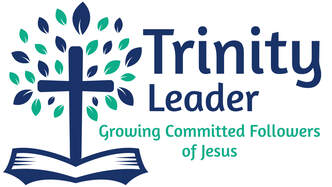 On Friday, the Supreme Court of Canada ruled in favour of Physician Assisted Death to mentally competent but suffering and "irremediable" patients, giving Parliament one year to enact legislation to conform to its ruling. An event like this necessitates that we reflect on our role as Christians and the Church within culture. Christians and the Church have a unique responsibility and right to engage with culture in a two-fold way: to critique culture and to offer a different way forward. The first important way that the Church engages culture is by critiquing it. While the temptation in critiquing society, government, or individuals is to focus on the negative we ought to first affirm those things which are positive (and every issue no matter how distressing has something which can be affirmed). There is also the responsibility to speak out against those things which are not so positive within society: speaking out against injustice and standing up for the voiceless. As we speak into culture, engaging society and individuals in a meaningful conversation we must offer a new and different way forward. It is one thing to simply discuss the issues but quite another to offer a different worldview to frame discussion and action. As we speak into culture, engaging society and individuals in a meaningful conversation we must offer a new and different way forward. That is where we as Christians and the Church have a different worldview to present: one based on life. We talk a lot about life, primarily eternal life with our God which is our hope, longing, and destiny. Too often this discussion of life is disconnected from our everyday experience of life. In John 10:10 Jesus says that He came “that they may have life and have it abundantly.” We are quick (rightfully so) to apply this to eternal life with Jesus but the promise of life abundant is for the here and now as well. Jesus came not just for a future life but for a rich, full, joyful life presently, one marked with hope for the future. And so it is good and important that we affirm and speak life. That is why we are here! Interestingly enough, both sides on the issue of Physician-Assisted Death appeal to the notion that life is precious. One side of the argument says, “Life is precious and so it should be valued to its natural end” while the other side argues, “life is too precious to endure pain/suffering.” While the issue clearly is about life, it is also about suffering. No one likes or wants to suffer. In fact, we often search out quick fixes to end any kind of suffering even if it is just a minor annoyance. As much as we try to avoid or get rid of suffering, it is still present. We are never told that we will have a life free of suffering. It is our cultural opinion that we have the privilege not to suffer. When we look to Scripture, we are reminded of the root of suffering: sin entering into the world as a result of humanity’s disobedience to God. Pain, brokenness, heart-ache, and death enter the world which becomes a place in need of hope. Many ask the question, ‘how can a good God allow suffering?’ There is no easy answer to that question, and no suitable answer if you or a loved one is suffering from a debilitating disease or is in chronic pain. The only solution that I have to suffering is Jesus. In Jesus, our God entered the world to endure pain and suffering. He died a gruesome and painful death. In His life, Jesus entered into humanity’s suffering and pain and by His death offers hope. Jesus enters into our suffering, giving us strength and encouragement. He calls us closer to our God who knows us, made us, and suffers with us. And so, what can we as Christians and the Church do as we stand for the sacredness of life, including life in the midst of suffering? We are to offer a different way forward: 1. Pray. Pray for God’s Kingdom to come powerfully bringing healing to sick, wholeness to the broken, and restoration to the outcast. Pray for God’s Kingdom to come and His will be done as earth as in heaven. 2. Advocate for life. Write politicians, your MP and MLA; the Premier and the Prime Minister. Encourage others to do so as well to stand up for the value of life even when there is minimal perceived value. 3. Get involved. It is one thing to speak against Physician-Assisted Death but another to put the words into action. The suffering need love, they need the hope that only Jesus can offer. Speak life into the suffering, hurting, pained, and broken. Support palliative care efforts which give dignity in the midst of suffering and death. Photo Attribution: Andrea Mantegna [Public domain or Public domain], via Wikimedia Commons
0 Comments
 As we’ve been looking at the opening scenes in the book of Genesis, one of the important things we’ve done is to take some time to think about who is God. It may not seem like it is worth spending much time on. Perhaps we think we’ve got it all figured out already or that God doesn’t really matter that much. In fact, I would be willing to bet that some of us would be willing to keep God out of our lives until it is convenient or we think He is needed. I’ve had the privilege of looking closely at Genesis 1-11 over the past several months (spending time in the Word is one of the greatest blessings of what I do). As I have read the text and commentaries about the text, I have been reminded repeatedly about why I love and serve God the way I do. Genesis clearly paints a picture of a loving, interactive, all-powerful God who longs for relationship with all He has made. A lot of time could be spent wading through all the characteristics of God which are presented in Genesis. But the one that I can’t get over is God’s interaction with His creation. Some much of what we hear about God or gods points us in the direction of a God who doesn’t want to be involved in the daily grind of our life. And yet, the God of Genesis is shown to be active in each day of Creation and in everyday since. I need a God who is all powerful to be active in my life because too often I come up short. I need a God who is loving because too often I am not. I need a God who is relational because too I would shrink back to my own life and only care about my own wants & needs. The God we read about in Genesis is not a myth, fairy-tale, or an invention of human imagination. This God is real, active, sustaining, loving. In short, thinking about God involves more than just using your mind. It is about an encounter with the living God; an encounter that aims to be life changing. Photo: Used under Creative Commons License: CC0 Public Domain. http://pixabay.com/en/thinker-thinking-person-idea-28741/
|
AuthorPastor J-M shares some occasional thoughts and musings on our life together as followers of Christ. The views are his own. Archives
October 2023
Categories
All
|
- Home
- About
-
Learning & Growing
-
Sermons
>
- 1 Samuel
- Lent
- Spiritual Conversation
- Advent
- 1 Timothy
- Single Messages
-
Older Sermons
>
- Judges
- Joshua
- Galatians
- Lamentations
- 1 Peter: Living Hope
- Acts
- What Does This Mean?
- Gospel Identity: Gospel Living
- Nehemiah
- Questions of Faith
- Proverbs
- Hebrews
- Sermon on the Mount
- 1 Thessalonians
- Psalm 23: Walking with the Lord
- I Believe: The Apostles' Creed and a Living Faith
- 1 Corinthians
- Difficult Questions
- Genesis: God's Endless Faithfulness
- The Lord's Prayer
- Mark
- Genesis
- Bible Studies >
- Kids
- Blog
-
Sermons
>
- Worship Videos & Resources
- Contact
- Home
- About
-
Learning & Growing
-
Sermons
>
- 1 Samuel
- Lent
- Spiritual Conversation
- Advent
- 1 Timothy
- Single Messages
-
Older Sermons
>
- Judges
- Joshua
- Galatians
- Lamentations
- 1 Peter: Living Hope
- Acts
- What Does This Mean?
- Gospel Identity: Gospel Living
- Nehemiah
- Questions of Faith
- Proverbs
- Hebrews
- Sermon on the Mount
- 1 Thessalonians
- Psalm 23: Walking with the Lord
- I Believe: The Apostles' Creed and a Living Faith
- 1 Corinthians
- Difficult Questions
- Genesis: God's Endless Faithfulness
- The Lord's Prayer
- Mark
- Genesis
- Bible Studies >
- Kids
- Blog
-
Sermons
>
- Worship Videos & Resources
- Contact

 RSS Feed
RSS Feed